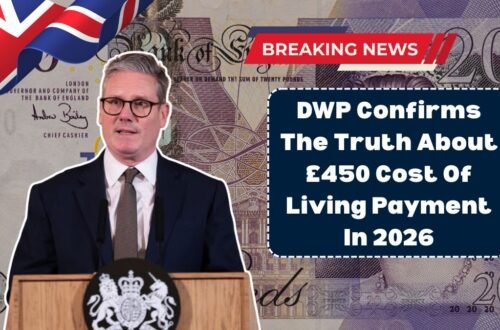A looming £1,560 annual cut in the State Pension has sparked concern among UK retirees.
As 2025 approaches, many pensioners may see their income slashed, and it’s essential to understand who will be hit hardest, why this is happening, and how to prepare for the change.
Why the Pension Cut Is Happening
At the heart of the cut is a combination of rising costs for the government, pressure on pension funding, and reforms to pension policy.
The government has indicated that staying committed to previous pension guarantees is becoming increasingly difficult amid slow wage growth, higher inflation and public spending demands.
As a result, pensioners are facing an unexpected reduction.
The projected average cut works out to around £130 a month—equivalent to £1,560 a year.
Who Will Be Most Affected
While many pensioners will feel the impact, some groups face greater risk of hardship.
- Single pensioners relying solely on the State Pension will feel the full force of the drop.
- Low-income retirees without private pensions or savings will see less cushion.
- Women and carers, who often have fewer years of pension contributions, may get lower absolute payments and see the reduction proportionately greater.
- Retirees living in high-cost areas such as London or the South East, where everyday expenses are higher, will struggle more with any loss of income.
Key Facts & Figures
Here’s a summary table of the major figures to keep in mind:
| Item | Detail |
|---|---|
| Annual Average Cut | £1,560 |
| Monthly Equivalent | Around £130 |
| Timing | Expected reduction beginning in 2025 |
| Affected Payment | The State Pension payment relying on policy reform |
| Most Impacted Groups | Single pensioners, low-income retirees, women, carers |
| Overall Risk | Millions of UK pensioners could see income shortfall |
What It Means for Retirement Planning
A reduction of £1,560 a year may seem modest — but for those living on tight budgets, it can translate into serious hardship.
Pensioners already grappling with high energy bills, rising food costs and limited income may need to make tough decisions: scaling back on essentials, delaying retirement, or looking for part-time work.
If you were planning retirement based on a certain income level, this cut means you’ll need to revisit your budget.
Consider options like reviewing your savings, checking your eligibility for additional state support, and adjusting your lifestyle expectations.
What Can Pensioners Do Now?
- Check your State Pension statement: See exactly what you are set to receive and whether you qualify for full payments.
- Review your budget: With an expected drop of about £130/month, adjusting expenses ahead can help.
- Consider supplementary income sources: A part-time job, private pension income or other assets may help offset the cut.
- Explore benefits and support: Pensioners on low incomes may still qualify for benefits such as Pension Credit, housing help or energy-bill schemes.
- Stay informed: Policy changes can still emerge and adjustments may be introduced, so keep up with pension-related announcements.
The threat of a £1,560 reduction in annual State Pension payments for UK retirees in 2025 is a wake-up call.
While the government has pointed to broader economic pressures and reform needs, the real‐world impact will be felt by countless pensioners already facing financial strain.
Those who rely on the State Pension as their main income must act now—check their numbers, tighten budgets and explore other income or support options.
Preparation today means avoiding crisis tomorrow.
FAQs
Single pensioners, low-income retirees, women and carers (with fewer pension years) will feel the effect most strongly.
The changes are expected to begin in 2025, with full annual-equivalent losses around £1,560.
Yes — check your pension forecast, adjust your retirement budget, look into supplementary income, and see if you qualify for additional benefits or support.






